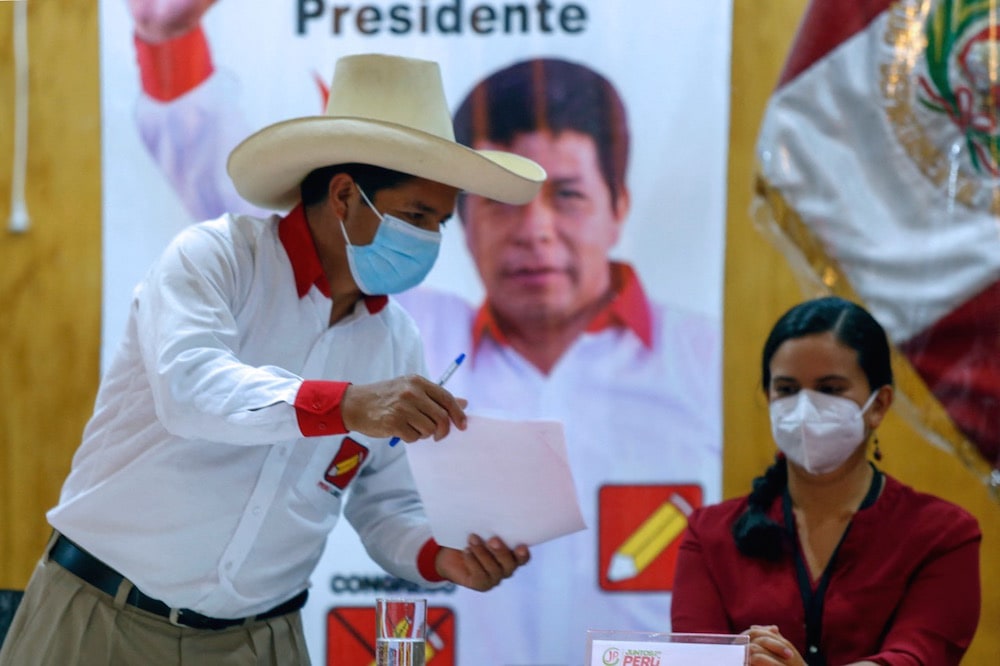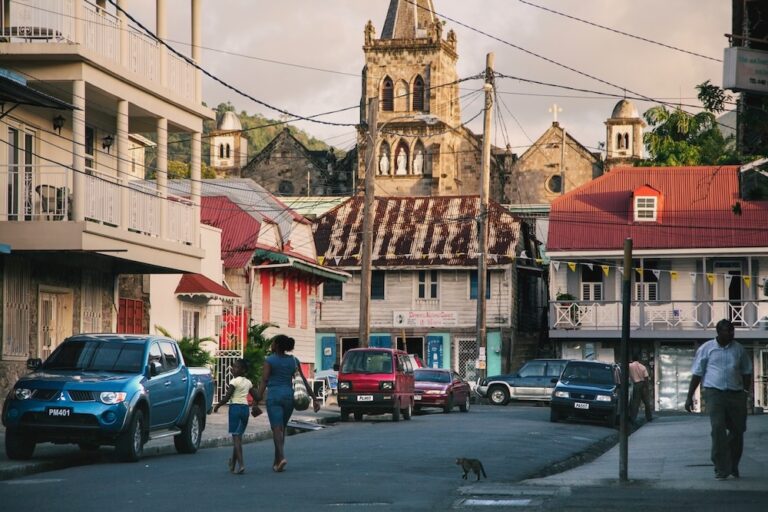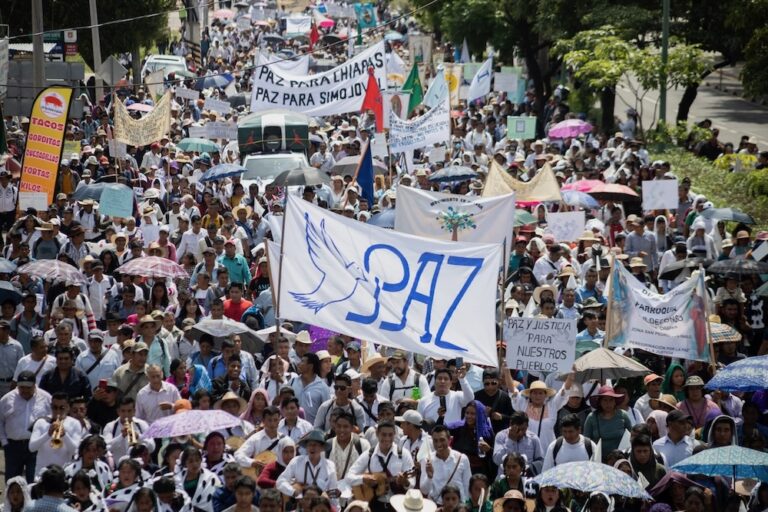April 2021 in the Americas: A free expression round up produced by IFEX's Regional Editor Paula Martins, based on IFEX member reports and news from the region.
No truth, no justice, no reparation
Three years ago, in April 2018, Ecuador’s President Lenín Moreno confirmed the death of Javier Ortega, Paúl Rivas Bravo and Efraín Segarra, a journalistic team from El Comercio newspaper. The three were kidnapped in the town of Mataje, close to the Colombia border, when covering the presence in the area of the Frente Oliver Sinisterra – a breakaway faction of the FARC (Fuerzas Armadas Revolucionarias de Colombia).
Despite initial bi-national efforts and the involvement in the case of a special task force put together by the Inter-American Commission on Human Rights (IACHR) to promote further investigations, IFEX-ALC members believe that Colombian and Ecuadorian authorities have failed the families of the victims.
On 12 December 2019, the IACHR presented the final report of the Special Monitoring Team (ESE) formed to follow the case. It recommended that the Colombian and Ecuadorian states create mechanisms to assess and determine comprehensive reparation to the relatives of the journalistic team.
According to IFEX member Fundación para la Libertad de Prensa (FLIP), Colombia has disregarded the report’s recommendations and not taken specific action to ensure reparations for the victims; it has also failed to show improvements in relation to the recommendations on access to information and transparency concerning the investigations.
For FLIP, “truth, justice and reparation are absent in this case”. The investigations show no significant progress, and there has been only one conviction. In October 2020, a direct redress process was initiated which seeks to declare the responsibility of the Colombian state for the deaths.
In March 2021, IFEX member the Andean Foundation for Media Observation and Monitoring (Fundamedios), called for a hearing at the IACHR, during its 179th period of sessions, where it also noted the lack of cooperation on the part of the Ecuadorian state to declassify the information around the abduction and murder of Javier, Paúl Rivas and Efraín.
FLIP and Fundamedios have called on both the Colombian and Ecuadorian states to commit to their international obligations and ensure that impunity will not last till another anniversary on this important case.
Technological mediation that deepens inequality
According to new research by IFEX member Derechos Digitales, we are currently observing a silent trend towards the implementation of different technological systems in Latin America to control access to ‘social protection’ – that is, to the policies developed to reduce poverty, social vulnerability, and exclusion.
Despite the expansion of these policies in the region, they are too-often subjected to (sometimes explicit, others, implicit) conditions impacting access. In addition, these policies are subject to ‘technological mediation’ – that is, they require biometric systems such as facial recognition or fingerprint collection, web applications, or unified digital records. According to Derechos Digitales, these systems can end up deepening inequalities rather than eradicating them.
Venezuela is an example of this. While the country is facing a sustained humanitarian crisis, biometric systems have been implemented to control the purchase of basic needs, resulting in allegations of discrimination against foreigners and transgender people who need to access such goods.
Read the full report to learn more about this and other cases.
Stigmatization, censorship and intimidation in Venezuela
In April, IFEX-ALC member Espácio Público published its March 2021 report. It documents 47 violations to freedom of expression during the period covered – among them, seven arbitrary arrests. Most cases relate to the dissemination of information on digital platforms and barriers to the research and reporting work carried out by media workers. In addition, two radio stations had their signals interrupted, and three cases of harassment and intimidation of journalists were reported.
During the same period, another IFEX-ALC member, Instituto Prensa y Sociedad (IPYS Venezuela), published the result of its monitoring of stigmatization campaigns carried out against those seeking to inform the Venezuelan public or questioning the actions of the state. Their report numbers 11 journalists, 10 media outlets and three civil society organizations among the victims of stigmatizing discourse in the first quarter of 2021. According to IPYS, criminalization of journalistic work and systematic smear campaigns became the new standard attack mechanism used against press workers during the first quarter of 2021.
Restrictions to civic space and the operation of civil society organizations in Venezuela were also highlighted by more than 600 organizations that reacted against a new compulsory nonprofit registry on 30 March. Providencia Administrativa No. 001-2021 now requires them to register with the National Office Against Organized Crime and Financing of Terrorism.
Molotov, disinformation, and elections in Peru
On 6 April, the Popular Renewal party’s presidential candidate Rafael López Aliaga posted to his Twitter account false information about alleged work that journalist Marco Sifuentes would have done for the government of former President Vizcarra.
In the early morning of 14 April, strangers threw a Molotov bomb at the car of Roberto Sánchez Mamani, a journalist with radio La Estación in Tacna, a region in the south of Peru. The journalist told IPYS that he has been receiving threats since March, and that this attack could be in retaliation for his questioning of some congressional candidates from the province of Tacna in the run-up to the 11 April elections.
On 21 April, the research portal IDL-Reporteros reported that an unidentified group created a fake Facebook account using their logo and name to post fraudulent content linked to the second round of elections in Peru.
Online gender-based violence norms in Mexico
Feminist representatives of civil society, the academy, lawyers and women human rights defenders expressed concern about the reform of the General Law on Women’s Access to a Life Free of Violence to include digital violence. According to them, their voices have not been heard in the process of legislative revision.
They feel that the current draft of the bill’s punitivista approach (focusing too much on punishment and retribution and too little on prevention) is counterproductive. They also reject the definition of digital violence against women being used, arguing that it does not correspond to the many ways this phenomenon manifests in real-life cases. Agencies, organisations, and institutions that defend rights have expressed that digital violence against women includes hacking, impersonation, surveillance, harassment, harassment, recruitment, practices called doxing and stalking, and the dissemination of sexist hate speech, among others. The approved draft also gives the Public Prosecutor’s Office disproportionate powers on cases classified as Digital Violence and Media Violence.
Art and protest in Cuba
IFEX-ALC and other IFEX members and organisations are calling out the continued, systematic harassment of journalists, artists, and activists in Cuba. This past April, government agents broke into Luis Manuel Otero Alcántara’s home and destroyed some of his artistic work. Luis Manuel, leader of the San Isidro Movement, has been the victim of house detention and permanent surveillance.
So far in 2021, IFEX member ARTICLE 19 has recorded 31 assaults against Luis Manuel Otero Alcántara – 15 house arrests, 14 arbitrary arrests, as well as various actions used in a smear campaign against him, and constant surveillance.
Acts of harassment and threats have also been perpetrated against people who have expressed solidarity with Luis Manuel. On 29 April, about 20 people who tried to visit him at his home were arrested, including some of his relatives.
ARTICLE 19 and other organisations have reminded the government of Cuba that despite precautionary measures granted by the IACHR on behalf of the San Isidro movement, harassment and intimidation by government officials have only escalated.
A Task Force on Disinformation Defense
IFEX members Pen America and the Electronic Frontier Foundation (EFF), along with other organizations, sent an open letter to US President Biden on 29 April recommending the establishment of a Disinformation Defense and Free Expression Task Force. According to the coalition, “the prevalence of deceptions, propaganda, and conspiracy theories related to the 2020 election, COVID-19, and the recent Capitol insurrection illustrates the clear and present threat that disinformation poses to our democracy and national security. However, we are equally mindful that solutions adopted in moments of crisis can themselves pose significant dangers to our fundamental freedoms”.
The groups propose the following mandate to the Task Force, which they suggest should be chaired by the Executive Director of the Domestic Policy Council:
- Development of governmental approaches that prioritize the defense of free expression in combatting disinformation;
- Initiatives to blunt the impact of disinformation on Black, Latino, Indigenous, AAPI [Asian Americans and Pacific Islanders], rural, and immigrant communities that are deliberately and disproportionately targeted by disinformation, as well as veterans vulnerable to disinformation campaigns;
- Identifying investigatory, disclosure, and information collection powers of federal agencies that can be leveraged to better understand disinformation and potential interventions;
- Supporting research into the socio-technical problem of disinformation, and especially its impact on Black, Latino, Indigenous, AAPI, rural, and immigrant communities; the prevalence of Spanish language disinformation in the U.S.; and identifying federal research priorities and funding mechanisms;
- Identifying strategies to increase media literacy among children and adults as a way to stem the spread of disinformation;
- Engagement with social media companies on measures the platforms can take to defend against disinformation; and
- Training on anti-disinformation strategies for government officials and staff.
An existential threat to the open internet in Canada
In late April, the Canadian federal government proposed and passed an amendment to Bill C-10 that would make all user generated audiovisual content on online platforms subject to the regulatory powers of the Canadian Radio-television and Telecommunications Commission (CRTC).
According to digital rights groups, the amendment was introduced as a last-minute change and without due participation and discussion by the public.
IFEX member OpenMedia has been campaigning against Bill C-10. According to OpenMedia, “empowering the CRTC to regulate individuals’ posts to the Internet under broadcast regulation is an existential threat to the open internet in Canada”. The group’s campaign is now calling for MPs to vote against Bill C-10.
National security and freedom of expression in Brazil
The Brazilian National Security Law has existed since 1983. Adopted in the final moments of the military dictatorship, it lists crimes against national security and political and social order and was mainly used to frame strikers and protesters.
In 2018, the law came back to public attention after Adélio Bispo de Oliveira, who stabbed President Jair Bolsonaro during the presidential campaign, was indicted on the basis of such legislation, for the crime of “personal attack for political nonconformism”.
More recently, the National Security Law has returned to Brazilian politics amid disputes between the government of Bolsonaro and his supporters and groups and entities opposed to certain actions conducted by the administration.
Now the Brazilian Congress is discussing a new bill to replace it. IFEX member EFF has warned that its proposed replacement, Bill 6764/02, raises various concerns, some particularly unsettling for digital rights. Even with alternative drafts attempting to untangle them, problems remain.
Read their analysis of worrisome provisions as well as recommendations for reforms, here.
ADC and ARTICLE 19 launch PubliElectoral in Mexico
PubliElectoral is a technological tool that will detect and analyze political advertising disseminated in the run-up to the 6 June elections in Mexico, which will be the largest in the history of that country.
The tool, created by IFEX member the Asociación para los Derechos Civiles (ADC), was launched during Argentina’s 2019 presidential campaign. It emerged from a need for an independent measurement tool that would monitor social media campaign ads with the cooperation of internet users. In 2020, it was deployed in Chile to collect information from political ads relating to the National Plebiscite in October of that year.
In brief
Colombia – On 20 April, an unidentified man on a motorcycle shot and slightly injured a freelance photojournalist who often contributes to the independent news website Colombia Informa, in the western city of Cali. Luis Carlos Ayala told CPJ that he has spent the past six months working on an independent reporting project covering Indigenous and Afro-Colombian groups defending their land from business interests and drug smuggling groups in Cauca department, located just south of Cali.
Mexico – On 23 March, Dianeth Pérez Arreola, an investigative reporter and the founder of the website Yo Rechazo la Corrupción y la Impunidad, received a letter from the office of the Special Prosecutor for Attention to Electoral Crimes of Baja California state, ordering her to remove any references to Natalia Rivera, a local political candidate, from the outlet’s website. Later she received two additional letters with similar content. The letters warned that Pérez Arreola could be arrested or fined if she refused to comply.
Uruguay – A government coalition reached consensus to resume debate in Parliament over the new Media Law in Uruguay. According to news reports, these agreements refer to the issues of media ownership concentration rules, the possibility for pay-TV companies to offer internet services, and the retransmission of open TV signals by cable TV providers. According to local IFEX-ALC member Observacom, the current draft of the Media Law proposed by the government promotes more concentration and less pluralism in broadcasting.
Argentina – IFEX member Foro de Periodismo Argentino (FOPEA) denounced the physical aggression suffered by photojournalist Diego Izquierdo of Mar del Plata and demanded that the local authorities conduct a thorough investigation into the case. Izquierdo, of Puerto Magazine, was attacked on 21 April when he was preparing to cover an assembly of the United Maritime Workers’ Union. According to the complaint, trade unionist Ernesto Sergio Basail approached him for taking photographs and began insulting him, after which he pushed him, threw him to the ground and proceeded to kick him.



